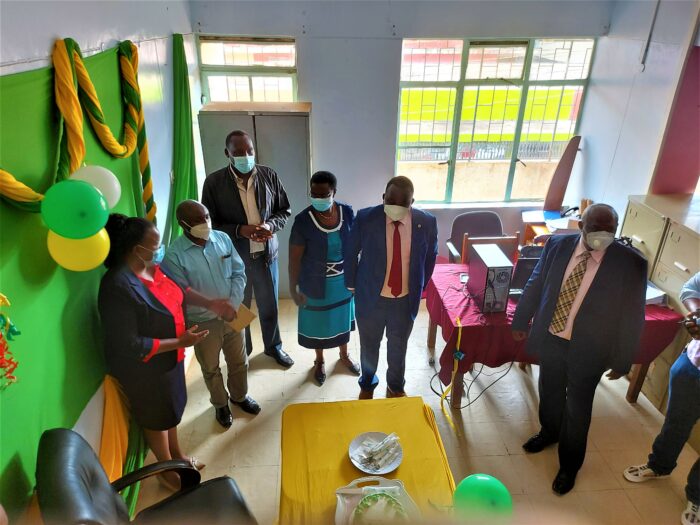
As values-based, democratically run businesses, cooperatives don’t love to talk about conflict, but it is necessary. Cooperatives are designed to serve their member-owners, and inevitably there will be disagreements—internal disputes and sometimes with external parties. In Kenya, the cooperative sector is finding effective ways of dealing with discord through alternative dispute resolution, and county government cooperative extension officers are leading the way.
Through NCBA CLUSA’s Creating an Environment for Cooperative Expansion (CECE) project, funded by the US Agency for International Development (USAID) Cooperative Development Program (CDP), NCBA CLUSA sponsored several cooperative officers to get trained and certified in alternative dispute resolution (ADR) in partnership with the Cooperative Alliance of Kenya and Kenya Union of Savings and Credit Cooperatives. The impetus for this training, which was held at the end of 2020, came a couple years earlier when CAK polled its cooperative members on their most pressing challenges. The need for mediation services was clear, so CAK set out to design and implement a certification course.
After the week-long course in Nairobi, NCBA CLUSA’s CDP project worked with the newly certified cooperative officers from Meru and Nandi Counties to establish ADR helpdesks at the county government offices. The officers also trained fellow officers to build these skillsets among their teams. Launch events were held, and NCBA CLUSA helped spread the word about these new services through CDP activities and helpdesks referrals.
Meru and Nandi Counties’ Cooperative Departments have developed three levels of services. For a cooperative’s internal dispute, the goal is to train the management and board on effective ways of mediating and resolving the issue on their own. If a dispute cannot be resolved internally or involves an external party, the second level is for a sub-county officer to step in and mediate. If the case still cannot be resolved, it is taken to the county helpdesk.
In the less than two years since these ADR services began, cooperative officers have worked diligently to serve the cooperatives in their jurisdictions: 37 cases came across their desks, and an impressive 33 cases have been amicably resolved with only 4 cases pending.
Many of the registered disputes involved loan defaults. For example, one case filed by a savings and credit cooperative involved an agricultural cooperative that had changed board leadership and was delinquent in the repayment of their loan. Through the county’s ADR support services, a lower interest rate was negotiated along with new repayment terms. Both parties are happy with the outcome and grateful the matter didn’t need to be taken to court.
One internal dispute that required mediation involved a producer group within an agricultural cooperative that aggregated maize from the cooperative’s membership and sold it to a buyer. The producer group put the money from the sale into their account without informing the cooperative which led to a side-selling dispute that dragged on for months. With mediation support from a sub-county cooperative officer, the PO and cooperative level leaders came together and reached an agreement on how to distribute the money fairly.
The addition of these ADR services is helping to build a stronger support ecosystem for cooperatives in Meru and Nandi Counties.
“ADR has healed some of our cooperatives,” explained Nandi Dairy Cooperative Union Chairman Dr. Abraham Rugut. The Cooperative Department head in Meru County, Mugambi Sandi, shared similar sentiments, “When disputes are resolved amicably through the ADR mechanism, no one is taken to court and peace prevails.”
Furthermore, these services enable cooperatives to regain trust and build back member relations. As Githongo Dairy Cooperative Society Manager Purity Kagwiria explained, “Through ADR, many difficult cases that had threatened to sever relationships between members, board, and management have been resolved.”
Although NCBA CLUSA’s CDP project helped fund the initial ADR certification trainings and has been monitoring progress of these mediation activities, the county governments and cooperative officers institutionalized the helpdesks and continue to provide these services on their own. They are proud of their progress and encouraged by the impact of their work. As sub-county cooperative officer Hosea Kiprop said, “Resolving cooperatives’ cases out of court or tribunal has assisted farmers in Nandi County. This has made our work easier and earned us a lot of respect from the community.”
For NCBA CLUSA, as a cooperative development organization focused on strengthening capacities of local partners, there is no better outcome. NCBA CLUSA’s current CDP project will end later this year, but the cooperative departments in Meru and Nandi Counties will continue to support the cooperative sector with these ADR services.


